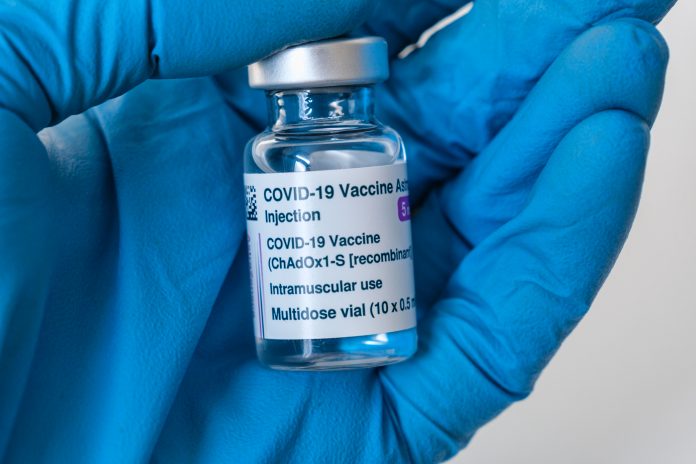In a study of over 32,000 people, a US trial found the AstraZeneca vaccine was 100% effective against deaths caused by COVID-19 – the vaccine did not show any connection to blood clots
The trial crucially confirmed that the AstraZeneca COVID vaccine was 100% effective at stopping hospitalisation and death, with an average efficacy of 79%.
There were 32,449 people on the trial, which was held in North America, Chile and Peru.
Mene Pangalos, Executive Vice President, BioPharmaceuticals R&D, said: “We are preparing to submit these findings to the US Food and Drug Administration and for the rollout of millions of doses across America should the vaccine be granted US Emergency Use Authorization.”
New data suggests 80% protection in people over 65
The real-world data rolling out of the UK has since shown that the older population are being sufficiently protected by the AstraZeneca vaccine. On 2 March, a UK analysis of data showed that AstraZeneca was providing 60% protection to those atleast 70 years old.
That study was released at a time when EU countries were banning the use of AstraZeneca in their older populations, due to fears about inadequate testing. This was before blood clot risks dominated headlines across the bloc, and caused a second wave of doubt about the efficacy of the drug.
In this US clinical trial, the number for vaccine efficiency rose to 80% in people aged 65 years and over.
Roughly 20% of clinical trial participants were 65 years and over, and 60% had co-morbidities like diabetes, severe obesity or cardiac disease – which are known to create tangible risks for hospitalisation and death.
What did the new trial find out about blood clots?
Several countries suspended use of AstraZeneca, citing fears of blood clot risks. An investigation by the European Medicines Agency (EMA) found that there was no causal link between the rare reports of blood clots and the vaccine – rather, these blood clots were caused by something else.
In this new batch of data on AstraZeneca, there was an additional review of thrombotic events, alongside cerebral venous sinus thrombosis (CVST) “with the assistance of an independent neurologist”.
There were no elevated risks for blood clots in the 21,583 participants receiving at least one dose of the AstraZeneca vaccine, with zero incidents of CVST in the participants.
Professor Ann Falsey, co-lead investigator at University of Rochester School of Medicine, commented: “This analysis validates the AstraZeneca COVID-19 vaccine as a much-needed additional vaccination option, offering confidence that adults of all ages can benefit from protection against the virus.”











